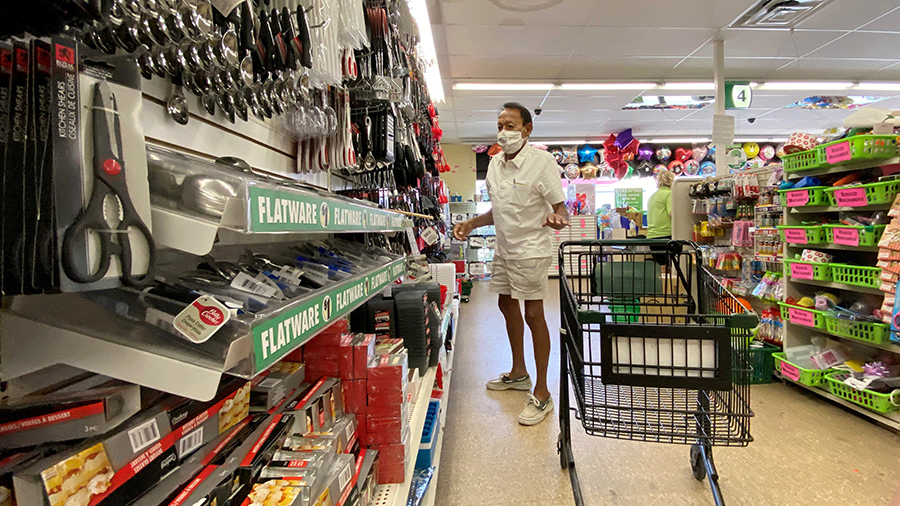U.S. consumer confidence fell the most in two years as pessimism on the labor market, higher borrowing costs and stubborn inflation curbed optimism. The Conference Board continues to expect a recession before the year’s end.
The Conference Board’s index fell to 106.1 this month from 114 in July, data out Tuesday showed. Economists polled by The Wall Street Journal had forecast a modest pullback to 116 from the initial reading of 117, the highest level in two years.
Based on consumers’ assessment of current business and labor market conditions, the Present Situation Index fell to 144.8 from 153.0. Based on consumers’ short-term outlook for income, business, and labor market conditions, the Expectations Index declined to 80.2 in August, reversing July’s sharp uptick to 88.0. Expectations were slightly above 80, the level the Conference Board’ said historically signals a recession within the next year. Although consumer fears of an impending recession continued to recede, The Conference Board said it continues to anticipate one is likely before yearend.
“Consumer confidence fell in August 2023, erasing back-to-back increases in June and July,” said Dana Peterson, chief economist at The Conference Board. “August’s disappointing headline number reflected dips in he current conditions and expectations indexes. Write-in responses showed that consumers were once again preoccupied with rising prices in general and for groceries and gasoline in particular. The pullback in consumer confidence was evident across all age groups and was most notable among consumers with household incomes of $100,000 or greater and those earning less than $50,000. Confidence held relatively steady for consumers with incomes between $50,000 and $99,999.”
Peterson added, “Assessments of the present situation dipped in August on receding optimism around employment conditions. Fewer consumers said jobs are ‘plentiful’ and more said jobs are “hard to get.” Hard data confirmed that employment gains have slowed, overall wage increases are less generous compared to a year ago, and the average number of weeks of unemployment is ticking upward. Business conditions in August were little changed from July, but still somewhat lower than in June.
“When asked about current family financial conditions, a measure not included in calculating the Present Situation Index, the share of respondents citing a “good” situation fell, and those citing “bad” conditions rose, signaling concerns about family finances presently,” Peterson continued.
“Expectations for the next six months tumbled back near the recession threshold of 80, reflecting less confidence about future business conditions, job availability, and incomes. Consumers may be hearing more bad news about corporate earnings while job openings are narrowing and interest rates continue to rise, making big-ticket items more expensive. Notably, expectations for interest rates jumped in August after falling two months ago. Also, the outlook for stock prices fell and average 12-month inflation expectations ticked up. The measure of the expected family financial situation six months hence (not included in the Expectations Index) softened further.
“The proportion of consumers saying recession is ‘somewhat’ or ‘very likely’ ticked down again in August but remained elevated at 69.0 percent. These soundings likely reflect ongoing uncertainty, given mixed buying plans. On a six-month moving average basis, plans to purchase autos and appliances continued to trend upward, but plans to buy homes—more in line with rising interest rates—continued to trend downward. The dip in overall confidence notwithstanding, consumer plans to go on vacation, especially abroad, leaped upward in the month and slightly exceeded August 2022 readings, suggesting a continued penchant for spending on services.”
Photo courtesy Dollar Tree/Reuters










